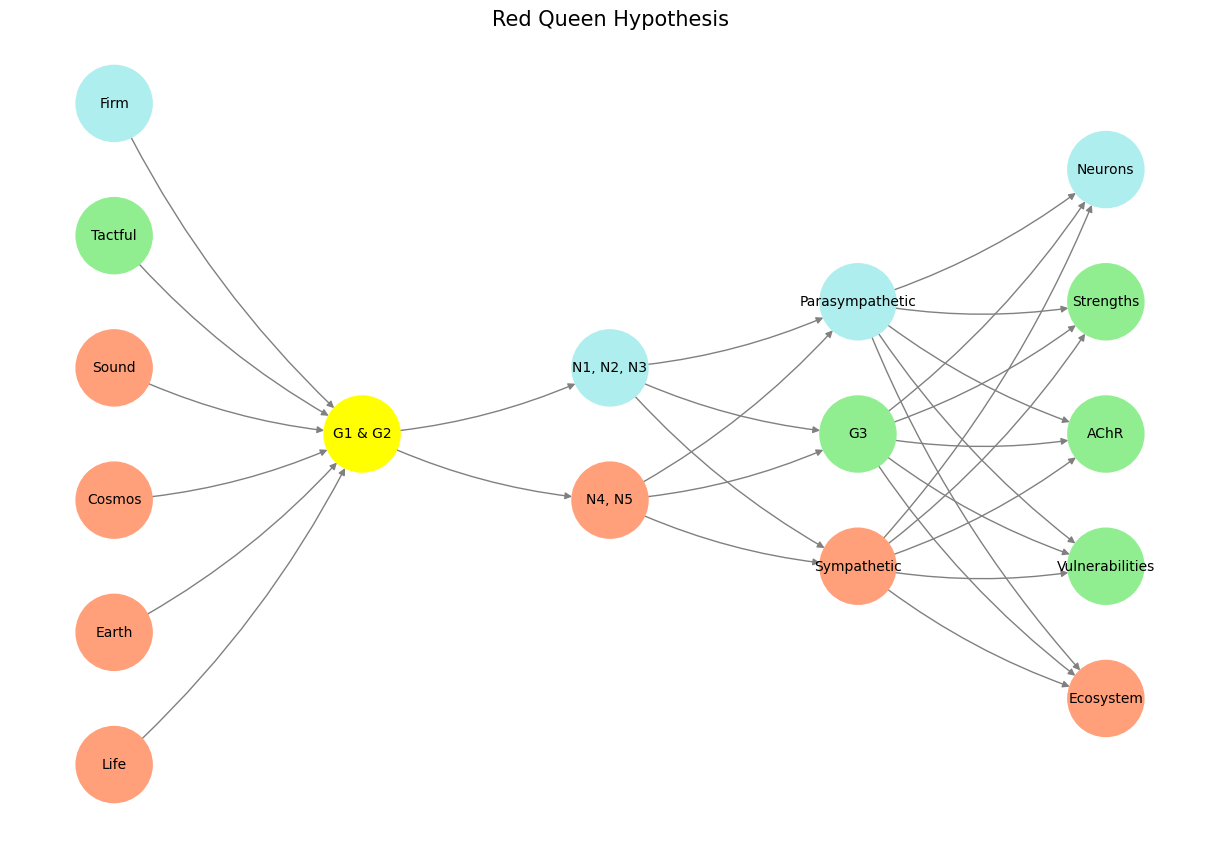Risk#
The Triadic Madness of Cheerfulness and Strength: From Nietzsche to AI’s Combinatorial Ascent#
To begin with Friedrich Nietzsche’s Twilight of the Idols is to invoke a cheerfulness that emerges not as a veneer of optimism but as a strategy—an embodied, adversarial resilience against the abyss. “Maintaining cheerfulness in the midst of a gloomy task, fraught with immeasurable responsibility, is no small feat,” Nietzsche writes, intertwining the Dionysian force of prankishness with a Herculean depth of strength. He goes further to assert that strength—excess strength—is defined not merely by survival but by the capacity for joyous improvisation in the face of the infinite. This triadic structure, rooted in the interplay of cheerfulness, responsibility, and strength, is not limited to philosophy; it echoes through the mechanics of artificial intelligence, particularly in the creation of systems that thrive in vast combinatorial search spaces.
The Objective Metric: Responsibility as Optimization#
Nietzsche’s framing of immeasurable responsibility mirrors the clear objective function required for AI systems to operate effectively. Responsibility, in this sense, is not a burden but a metric—a target to optimize against. For Nietzsche, this is the task of living a life worthy of its own affirmation, a life that can eternally recur without regret. For AI, the objective function—be it maximizing reward, minimizing error, or navigating ethical trade-offs—is the guiding star that aligns the chaos of inputs with the clarity of outputs.
Demis Hassabis, in his Nobel lecture, outlines the essential components of AI’s triadic structure: massive combinatorial search space, a clear objective function, and abundant data or accurate simulation. Nietzsche’s excess strength finds its counterpart in AI’s metric-driven focus, a disciplined yet dynamic march toward defined outcomes. Whether in reinforcement learning or evolutionary strategies, the clear objective function becomes the tether that keeps both AI and philosophy from dissolving into nihilistic entropy.
Data and Simulators: Feeding and Breeding in Combinatorial Space#
Nietzsche’s invocation of cheerfulness as essential to strength evokes the primal biological imperatives of feeding and breeding. These imperatives parallel AI’s need for robust input layers, fueled by copious data and efficient simulators. Just as Nietzsche’s prankishness transforms the base drives of survival into transcendent affirmations, AI transforms raw data into insights through iterative optimization and simulation.
The input layer is the grounding reality from which AI’s hidden layers extract meaning. Hassabis emphasizes the ideal of both abundant data and accurate simulators—a duality that mirrors Nietzsche’s own dualism of the Apollonian and Dionysian. Data provides the structure (Apollonian), while simulation enables dynamic exploration (Dionysian), together forming the bedrock of AI’s strength.
The Fruitful Madness of Triadic Structures#
Across the ages, triadic structures have proven profoundly fertile. Nietzsche’s cheerfulness-responsibility-strength triad finds its echo in the input-hidden-output paradigm of artificial intelligence. Both systems thrive on the interplay of excess and optimization, chaos and clarity, survival and transcendence. In Nietzsche’s work, the triad becomes a strategy for life’s affirmation; in AI, it becomes the architecture for solving problems that once seemed insurmountable.
This triadic madness, far from being a descent into chaos, is a structured dance with the infinite. It is the prankish excess of strength that enables Nietzsche’s cheerfulness and the combinatorial capacity that fuels AI’s breakthroughs. The enduring legacy of this structure lies in its ability to compress the overwhelming into the actionable, to transform the abyss into a wellspring of creation.
In the end, both Nietzsche and AI remind us that the measure of strength lies not in mere survival but in the capacity to navigate—cheerfully, optimally, and expansively—the vast search spaces of existence.
Show code cell source
import numpy as np
import matplotlib.pyplot as plt
import networkx as nx
# Define the neural network structure
def define_layers():
return {
'Pre-Input': ['Life', 'Earth', 'Cosmos', 'Sound', 'Tactful', 'Firm'],
'Yellowstone': ['G1 & G2'],
'Input': ['N4, N5', 'N1, N2, N3'],
'Hidden': ['Sympathetic', 'G3', 'Parasympathetic'],
'Output': ['Ecosystem', 'Vulnerabilities', 'AChR', 'Strengths', 'Neurons']
}
# Assign colors to nodes
def assign_colors(node, layer):
if node == 'G1 & G2':
return 'yellow'
if layer == 'Pre-Input' and node in ['Tactful']:
return 'lightgreen'
if layer == 'Pre-Input' and node in ['Firm']:
return 'paleturquoise'
elif layer == 'Input' and node == 'N1, N2, N3':
return 'paleturquoise'
elif layer == 'Hidden':
if node == 'Parasympathetic':
return 'paleturquoise'
elif node == 'G3':
return 'lightgreen'
elif node == 'Sympathetic':
return 'lightsalmon'
elif layer == 'Output':
if node == 'Neurons':
return 'paleturquoise'
elif node in ['Strengths', 'AChR', 'Vulnerabilities']:
return 'lightgreen'
elif node == 'Ecosystem':
return 'lightsalmon'
return 'lightsalmon' # Default color
# Calculate positions for nodes
def calculate_positions(layer, center_x, offset):
layer_size = len(layer)
start_y = -(layer_size - 1) / 2 # Center the layer vertically
return [(center_x + offset, start_y + i) for i in range(layer_size)]
# Create and visualize the neural network graph
def visualize_nn():
layers = define_layers()
G = nx.DiGraph()
pos = {}
node_colors = []
center_x = 0 # Align nodes horizontally
# Add nodes and assign positions
for i, (layer_name, nodes) in enumerate(layers.items()):
y_positions = calculate_positions(nodes, center_x, offset=-len(layers) + i + 1)
for node, position in zip(nodes, y_positions):
G.add_node(node, layer=layer_name)
pos[node] = position
node_colors.append(assign_colors(node, layer_name))
# Add edges (without weights)
for layer_pair in [
('Pre-Input', 'Yellowstone'), ('Yellowstone', 'Input'), ('Input', 'Hidden'), ('Hidden', 'Output')
]:
source_layer, target_layer = layer_pair
for source in layers[source_layer]:
for target in layers[target_layer]:
G.add_edge(source, target)
# Draw the graph
plt.figure(figsize=(12, 8))
nx.draw(
G, pos, with_labels=True, node_color=node_colors, edge_color='gray',
node_size=3000, font_size=10, connectionstyle="arc3,rad=0.1"
)
plt.title("Red Queen Hypothesis", fontsize=15)
plt.show()
# Run the visualization
visualize_nn()


Fig. 19 Maintaining cheerfulness in the midst of a gloomy (adversarial/sympathetic/data-simulation-input) task, fraught with immeasurable responsibility (cooperative/parasympathetic/function-to-optimize), is no small feat; and yet what is needed more than cheerfulness? Nothing succeeds if prankishness has no part in it. Excess (iterative/acetylcholine/vast-combinatorial-space) strength alone is the proof of strength.#

